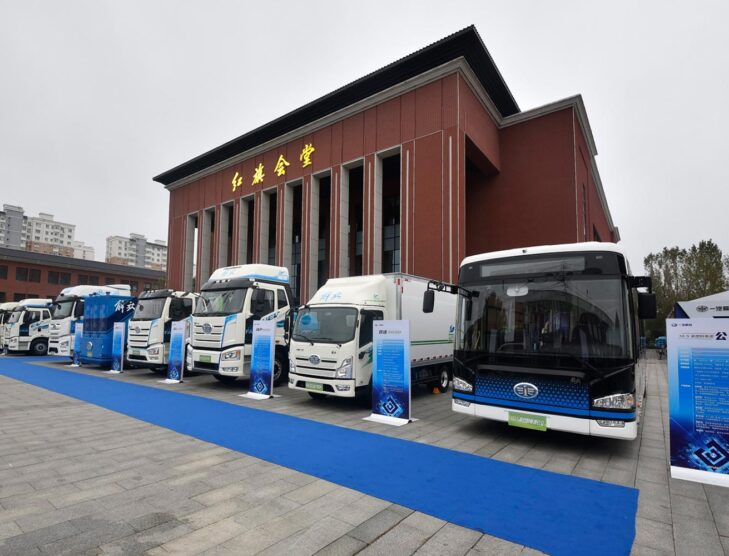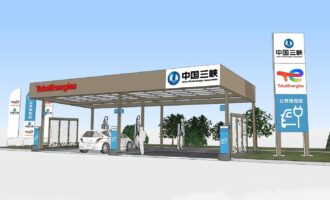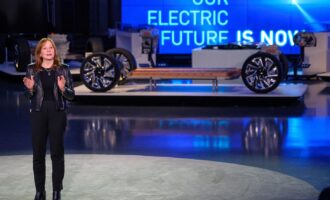
China’s largest commercial vehicle maker to invest in EVs
FAW Jiefang, a wholly owned subsidiary of FAW Group and the largest heavy truck manufacturer in China, announced plans to invest more than CNY30 billion (USD4.64 billion) to develop electrified or “new energy” commercial vehicles over the next five years. Headquartered in Changchun, Jilin, China, FAW Jiefang said it will develop pure electric, hybrid and fuel-cell vehicles, with the objective of becoming an industry leader in key and core technologies by 2030.
The investment will be used to build new energy innovation bases in nine domestic and overseas locations and an exclusive base for developing fuel-cell vehicles and systems.
New energy business unit
The company launched its new energy strategy yesterday and the establishment of the new energy business unit in Changchun.
Xu Liuping, chairman and secretary of the Party Committee of China FAW, said that FAW Jiefang “must seize major industrial opportunities in the transformation of the global automotive industry in the new era.”
Wang Zilian, deputy secretary of the Changchun Municipal Party Committee and mayor of Changchun, said that FAW Jiefang’s new energy strategy and the establishment of the new energy business unit marked a “major step” by FAW Jiefang, enhancing the status of the commercial vehicle industry.
Becoming a global commercial vehicle technology leader
Hu Hanjie, FAW Jiefang chairman and party secretary of China FAW, pointed out that FAW Jiefang is committed to become a global commercial vehicle technology leader, providing customers with “China’s first, world-class” new energy smart transportation solutions. Hu said the move also aims to contribute to China’s goals of peaking carbon dioxide emissions by 2030 and achieving carbon neutrality by 2060.
In 2025, 2030, and 2035, FAW Jiefang will target new energy vehicle sales of 120,000, 320,000 and 500,000 units, accounting for 20%, 50% and 70% of its total sales, respectively, Hu stated.









